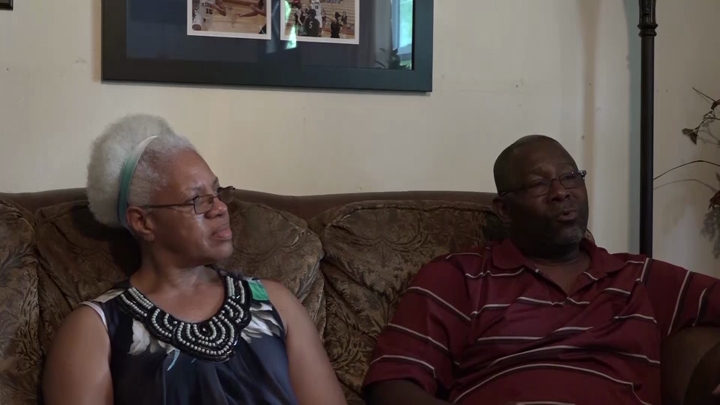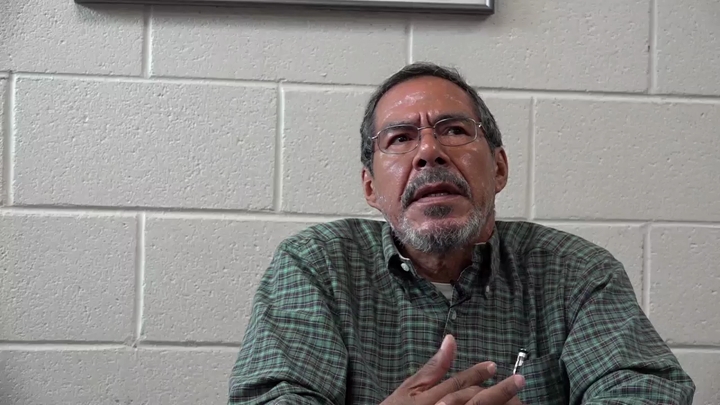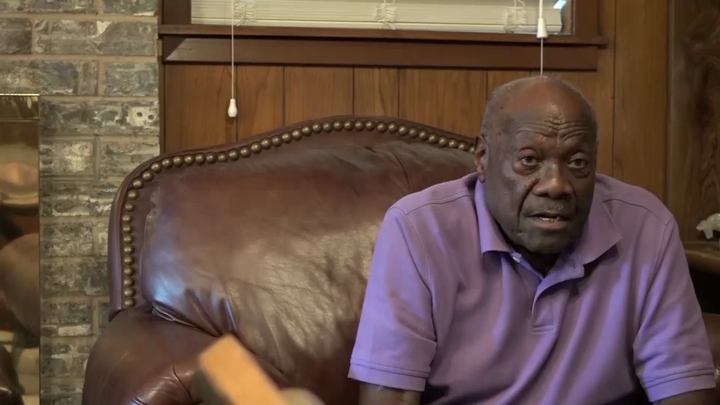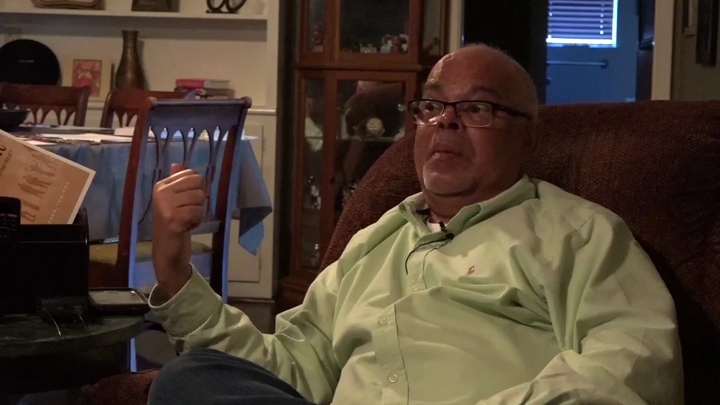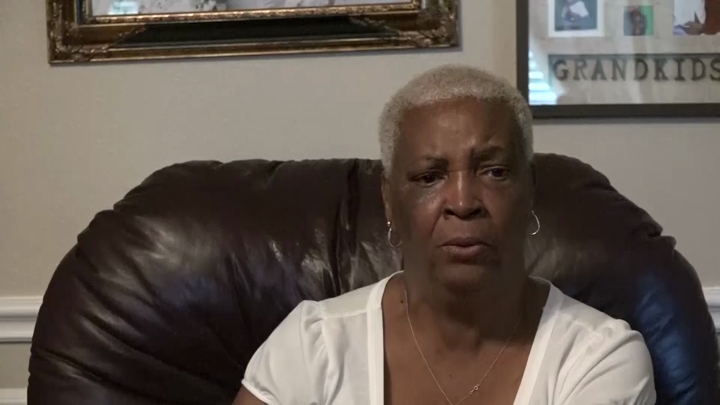Calyen / Police Brutality and Civil Rights
sign up or sign in to add/edit transcript
Interviewer: So, you mentioned the police. There have been three notable instances of police brutality or police killings in Texas. I guess the most—geography—close to you is the death of Sandra Bland in Waller County. Did that have any impact or any influence on people in Conroe? Calyen: Yeah, sure did. Especially in our churches. We talked about it and we have something going on at our church just about every evening. People were being told that Sandra Bland, especially, when she was killed—hung herself or however she died that something needs to be done. Then, you got the young man up in St. Louis in Ferguson, MO where he was killed. You know, you look at the TV now and Baton Rouge had a thirty-seven-year-old man that was killed by the police. You just wonder—I saw in the paper where they said they lost their body-cams. I was in combat and it was a bad thing to lose your weapon. That body-cam keeps you out of trouble and it keeps you from getting in trouble. There’s a show that’s called Person of Interest and they have all these cameras and I’m in favor of that, having more cameras around. That way you can keep an eye on everybody and if you ain’t doing nothing wrong, you ain’t got nothing to hide. Interviewer: Also, I guess, recently out of Texas with McKinney, TX— Calyen: That little girl that the police beat up. Interviewer: Yes. So, there was no charges— Calyen: No charges Interviewer: --against him. Even though it was on camera. So, do you see (inaudible) more justice in terms of the criminal justice system and police as a civil rights effort that still needs to be fought? Calyen: You see about all these cases—I been following the one in Baltimore. Everyone’s been acquitted. What can you do when you get a grand jury and the police does something wrong and you still acquit them? It makes people wonder if there’s any justice. I hear—a chant back in the days was “No Justice. No Peace.” I don’t want anybody to start a riot or anything because that’s just wrong too and most of the things that are destroyed belong to the people that are doing the rioting. (crosstalk) Calyen: The Justice Department, the district attorneys, the sheriff’s department, and the people that are in law enforcement, even the lawyers, they need to work on a fairness system. Don’t just railroad a person for nothing. You can help a person by a little punishment or you can hurt a person by too much punishment. Interviewer: So, question, what are civil rights to you? Calyen: Civil rights? In the Constitution it says we have these unalienable rights. Peace. Being able to—when you have a home and you’re not able to—certain unalienable rights—you want to be able to come into your home and come into your neighborhood and have a sense of well-being. You want to have justice in a courthouse. You want to have justice at your house. Martin Luther King said, “Injustice anywhere is a threat to justice everywhere.” So, when you got injustice going on in the Conroe Municipal Courthouse over there off of Old Montgomery Road and it trickles back into the neighborhood or you get a grand jury at the Montgomery County Courthouse that acquits a police officer that had just killed someone. Not that it has happened. You’d feel a sense of your inalienable rights have been taken away from you and everybody deserves some inalienable rights. Interviewer: In terms of the Texas Civil Rights Movement, why do you think a lot of people haven’t heard about it and it’s not in the history books as prominent? Calyen: It’s just like the black history that we find in our books. Unless you go out and dig, you’re not going to find it. Unless you get a person—it’s a shame that a person that’s been in the Texas Department of Criminal Justice, they can come out of that justice system—incarceration and know more about the law than a person that’s been educated in Harvard. Because I’ve met some of them. We call them Philadelphia lawyers. They had all this time that they’ve been able to find out how the justice system worked. A lot of people don’t know how the justice system works! Until the schools educate people, why don’t they have a day where they take them to the courthouse and find out exactly how you try someone. Everything that you learn, you don’t learn in the classroom.
| Interview | Interview with Henry Calyen |
| Subjects | Community Organizations › Civil Rights Organizations |
| Geography › Places (Cities, Towns, Neighborhoods, and Intersections) | |
| Police and Law Enforcement | |
| Police and Law Enforcement › Police Brutality | |
| Media | |
| Police and Law Enforcement › Sheriffs | |
| People › King, Martin Luther, Jr. | |
| Quantitative Questions | |
| Tags | Bland, Sandra |
| sign up or sign in to add/edit tags | |
| Interview date | 2016-07-06 |
| Interview source | CRBB Summer 2016 |
| Interviewees | Calyen, Henry |
| Locations | Mckinney, TX |
| Ferguson, Missouri | |
| Baton Rouge, Louisiana | |
| Duration | 00:06:55 |
| Citation | "Police Brutality and Civil Rights," from Henry Calyen oral history interview with , July 06, 2016, Conroe, TX, Civil Rights in Black and Brown Interview Database, https://crbb.tcu.edu/clips/3513/police-brutality-and-civil-rights, accessed March 03, 2026 |


